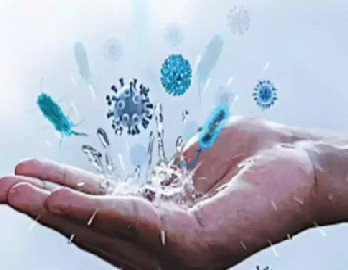
As Zimbabwe prepares for the onset of the rainy season, it is important to take into consideration the predictable but preventable threat of water-borne diseases.
With flooding, poor sanitation and aging infrastructure converging during the wet months, communities across the country face heightened risks of cholera, typhoid, dysentery and other diarrhoeal illnesses.
Cimas Health Group Bekezela Michael Ndhlovu explained that communities must take proactive steps to protect themselves and their families.
“Water-borne diseases are one of the four different categories of water related diseases. These are illnesses that occur when people inhale or aspirate contaminated aerosols or come into contact or consume pathogen contaminated water.
“Water-borne diseases are transmitted by directly drinking contaminated water with human or animal excreta. When this contaminated drinking water is then used to prepare food, it can be a source of food borne diseases,” Ndhlovu added.
He pointed out that the faecal-oral route remains the dominant transmission pathway, especially in communities with poor sewage management.
“This happens because of improper sanitation and poor sewage management through untreated or insufficiently treated water. In some areas this can be because of open defecation and when it rains, that faecal matter is carried to open water sources such as rivers and uncovered wells causing the spread of the harmful pathogens,” he said.
He went on to say water-borne diseases can be caused by all three pathogen types.
- Cimas to invest US$8m in infrastructure…as it targets medical tourism market
- Cimas gives rural pupils a treat
- Cimas expands services in Mat’land
- Cimas feasts amid crisis
Keep Reading
“In Zimbabwe, bacterial infections remain a major concern, the most common being cholera, caused by the bacterium Vibrio cholerae. Zimbabwe has suffered several cholera outbreaks with the last one ending early this year.
“However, bacteria are not the only culprits. Viruses are another cause of waterborne illness. In many communities, rotavirus and norovirus are responsible for diarrhoeal diseases, especially among young children.
“These viruses spread easily through dirty water or unwashed hands, causing vomiting and diarrhoea. That is why it is important for mothers to get their babies immunised against the Rota virus at six months and 10 months.
“Parasites also pose a threat. Parasites such as cryptosporidium and giardia can cause water-borne diarrheal diseases called cryptosporidiosis and giardiasis respectively.
“Cryptosporidiosis usually causes self limiting abdominal pain and diarrhoea on average lasting a week but can be prolonged and severe in immunosuppressed individuals,” he added.
Ndhlovu explained that contaminated water becomes a vehicle for disease when it carries these pathogens into homes and food preparation areas.
“Contaminated water can become a vehicle for disease transmission when it carries harmful microorganisms such as bacteria, viruses and parasites. These pathogens are contained in water that has been polluted by human or animal waste and has not been sufficiently treated, providing a breeding ground for multiplication and spread.
“Even water infrastructure itself can harbour danger. Biofilms, slimy layers that form inside water pipes and storage systems, can act as hidden reservoirs for dangerous bacteria. These microorganisms can survive for days or even weeks, depending on environmental conditions, and contaminate drinking water supplies,” Ndhlovu explained.
He also highlighted that environmental and infrastructural factors compound the risk, saying poor waste management and inadequate sanitation systems allow human waste to contaminate rivers, wells and other water sources.
“A lack of access to clean and safe water also forces many families to rely on unprotected sources such as shallow wells, streams or dams,” he added.
“Climate change and urbanisation are intensifying the threat. It will become warmer because of climate change and as this happens this will be more conducive for the proliferation of these pathogens,” Ndhlovu warned.
“Urbanisation will mean that there will be more traveling and crowding with poor hygiene and sanitation. This may also cause the spread of these diseases as there will be limited water sources as is already the case in most cities in the country.”
Certain populations are particularly vulnerable, Ndhlovu added, saying people living in overcrowded areas or informal settlements without proper toilets or waste disposal systems are at the greatest risk.
“Low-income and marginalised communities face the highest burden of water-borne illnesses, as they often lack the infrastructure and resources needed to ensure safe water and good hygiene.”
Symptoms of waterborne infections vary but often include diarrhoea, vomiting and fever. In severe cases dehydration and shock may follow.
“The symptoms may occur after a visit to a different area and drinking water from a different water source and may often involve more than one person in a household or travelling group that drank from the same source,” Ndhlovu explained.
“To confirm the diagnosis of waterborne diseases, a laboratory test is carried out, most often using a stool sample. The sample is examined under a microscope and may also be cultured, meaning it is grown in special conditions to identify the specific bacteria virus, or parasite causing the illness.
“The most severe threat of diarrheal diseases is dehydration. It is important to reverse or prevent dehydration and avoid it complicating to hypovolemic shock. This is done by keeping well hydrated, through taking oral rehydration salts and then using the appropriate antibiotics to treat the offending pathogen.
“Antibiotics are not always the answer when it comes to treating water-borne diseases. For parasitic infections, doctors use antiparasitic medicines, while viral infections such as those caused by rotavirus or norovirus usually do not respond to antibiotics at all,” he added.
“Home management of diarrhoea is possible with proper care. There are the four rules of home treatment of diarrhoea recommended by Unicef for children which can also work for adults,” Ndhlovu advised.
“These include giving more fluids than usual, zinc supplementation, continued feeding and knowing when to seek clinical care.
“Prevention hinges on sanitation and water treatment. Boiling and chlorination is highly effective for killing pathogens while filtration is best for removing larger particles but less effective against bacteria and viruses,” he explained.
“Boiling water to 100 degrees Celsius kills most of the pathogens, especially viruses and bacteria causing waterborne diseases. For it to be most effective, boil for at least 20 minutes.
“Vaccination also plays a critical role. Vaccines are available for some waterborne diseases such as cholera, typhoid, rotavirus and hepatitis A. The most effective protection combines the use of vaccination and the use of safe water and sanitation systems and proper hygiene practices.
“Communities with limited access to clean water may protect themselves by having simple filtration systems, treating water with chlorine or boiling all the water that they use for drinking.
“Travellers and those staying in rural areas should boil the water that they drink if they are not sure about the water sources. Travellers can consider carrying bottled water,” Ndhlovu recommended.
He added that access to clean and safe water is one of the most powerful tools in preventing disease and promoting public health. Contaminated water is at the heart of many preventable illnesses, from diarrhoeal diseases to cholera and typhoid.
“Access to safe water is not a luxury, it is a basic human need and a shared responsibility. Protecting our water today means protecting our nation’s health tomorrow,” Ndhlovu added.
The information in this article is provided as a public service by the Cimas iGo Wellness programme, which is designed to promote good health. It is provided for general information only and should not be construed as medical advice. Readers should consult their doctor or clinic on any matter related to their health or the treatment of any health problem. — [email protected]/ WhatsApp: 0772 161 829/ phone 024-2773 0663.











